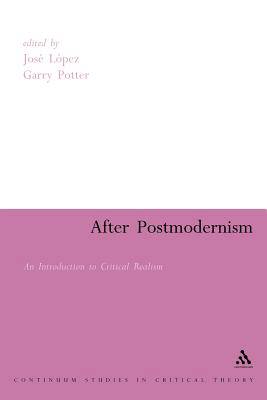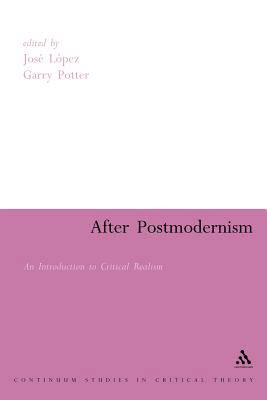
En raison d'une grêve chez bpost, votre commande pourrait être retardée. Vous avez besoin d’un livre rapidement ? Nos magasins vous accueillent à bras ouverts !
- Retrait gratuit dans votre magasin Club
- 7.000.000 titres dans notre catalogue
- Payer en toute sécurité
- Toujours un magasin près de chez vous
En raison de la grêve chez bpost, votre commande pourrait être retardée. Vous avez besoin d’un livre rapidement ? Nos magasins vous accueillent à bras ouverts !
- Retrait gratuit dans votre magasin Club
- 7.000.0000 titres dans notre catalogue
- Payer en toute sécurité
- Toujours un magasin près de chez vous
After Postmodernism
An Introduction to Critical Realism
137,95 €
+ 275 points
Description
What comes after 'postmodernism'? A buzzword which began as an energising, radical critique became, by the 20th Century's end, a byword for fracture, eclecticism, political apathy and intellectual exhaustion.
The last few years have seen a growing interest in critical realism as a possible, alternative way of moving forward. The virtues of critical realism lie in its successful provision of a philosophical grounding for the social sciences and humanities and of a methodology applicable to many different fields of analysis. After Postmodernism brings together some of the best-known names in the field to present the first truly interdisciplinary introduction to critical realism. The book presents the reader with a compendium of accessible essays illustrating the connection between meta-theory, theory and substantive research across Sociology, Philosophy, Literary Studies, Politics, Media Studies, Psychology and Science Studies. The flexibility of critical realism is illustrated in the range of topics discussed - ranging from quantum mechanics to cyberspace, to literary theory, nature, smoking, the future fo Marx, the unconscious and, of course, postmodernsim and the future of theory itself. Contributors: Allison Assiter, Ted Benton, Francis Barker, Roy Bhaskar, Jean Bricmont, Sue Clegg, Andrew Collier, Justin Cruickshank, Robert Fine, David Ford, Tim Forsyth, Rom Harre, Pam Higham, Philip Hodgkiss, Jose Lopez, Christopher Norris, Bertell Ollman, Jenneth Parker, Frank Pearce, Douglas V. Porpora, Garry Potter, John Scott, Philip Tew, Charles R Varela, Anthony WoodiwissSpécifications
Parties prenantes
- Editeur:
Contenu
- Nombre de pages :
- 352
- Langue:
- Anglais
- Collection :
Caractéristiques
- EAN:
- 9780826478924
- Date de parution :
- 18-04-05
- Format:
- Livre broché
- Format numérique:
- Trade paperback (VS)
- Dimensions :
- 154 mm x 235 mm
- Poids :
- 498 g

Les avis
Nous publions uniquement les avis qui respectent les conditions requises. Consultez nos conditions pour les avis.





